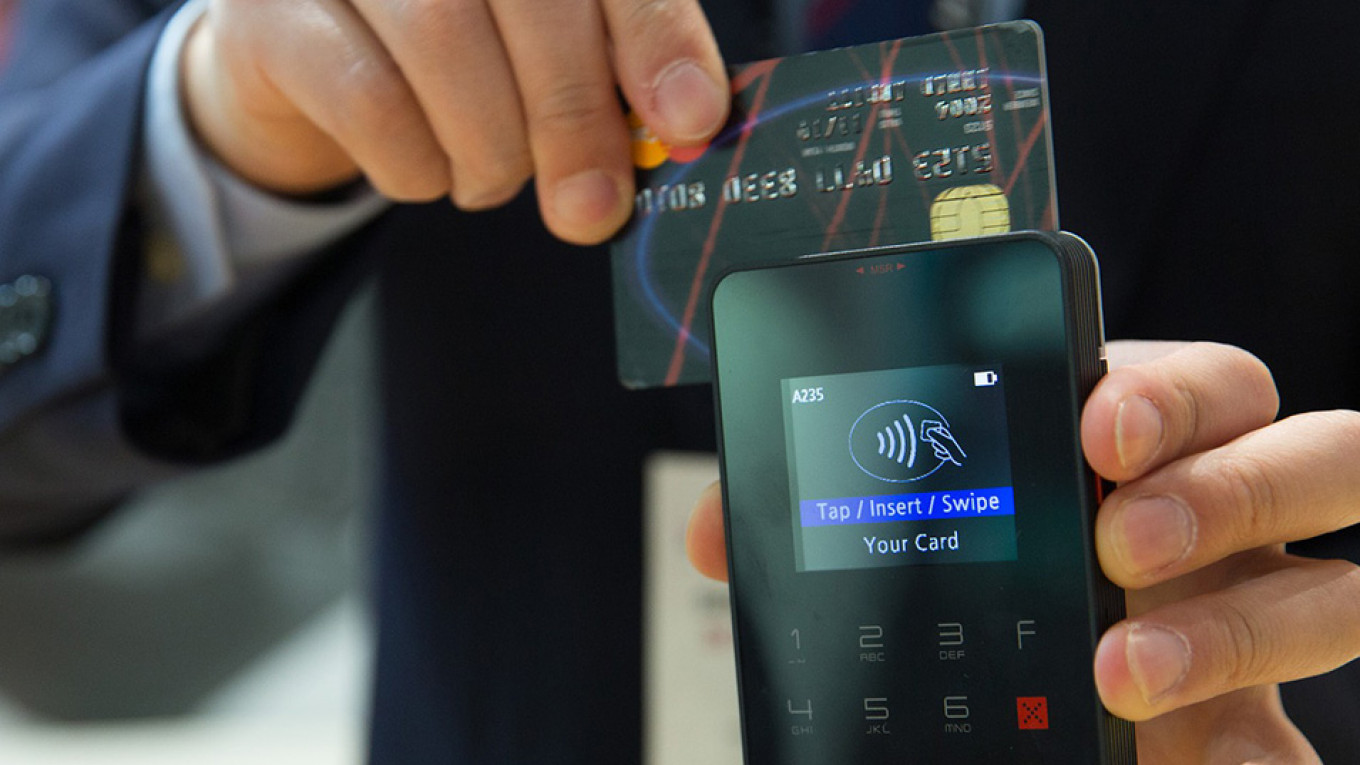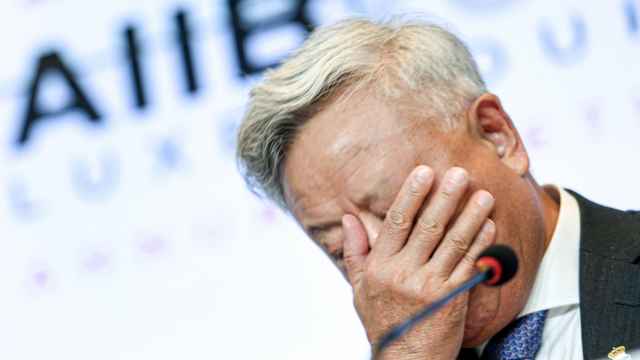Russia and its fellow BRICS countries — Brazil, China, India and South Africa — have backed a plan to create an anti-sanctions international payments system, a Russian official said on Thursday.
President Vladimir Putin is seeking to internationalize Russia’s System for the Transfer of Financial Messages (SFPS) — an alternative to the widely-used Swift system which facilitates interbank payments. SFPS was launched in 2017 as an attempt to sanctions-proof the Russian financial sector should the U.S. cut Russian banks’ access to Swift.
Now, plans to link the payments systems of the BRICS countries have been endorsed by the organization’s business council.
Kirill Dmitriev, the head of the Russian Direct Investment Fund (RDIF), said "increasing non-market risks of the global payment infrastructure" was behind the plan to integrate the group's national payment systems.
"An efficient BRICS payment system can encourage payments in national currencies and ensure sustainable payments and investments among our countries, which make up over 20% of the global inflow of foreign direct investment," Dmitriev told reporters.
China already has its own Swift alternative — the Cross-Border Interbank Payment System (CIPS) — which is used for international yuan transfers. The Indian financial sector does not have a domestic version, but a new Russia-India alternative could be created, the news site said.
Traffic on Russia’s SFPS has grown to 15% of the level of communications on Swift in the last two years, according to the central bank. Access to SFPS was recently rolled out to banks in the Eurasian Economic Union, with at least eight banks located outside Russia currently using the system.
Russia and Turkey also held urgent talks on connecting Turkish banks to SFPS over the summer, following the deterioration in U.S.-Turkey relations after NATO member Turkey took delivery of Russia’s S-400 missile defense system. The Russian Finance Ministry confirmed the talks had taken place after government documents were found in a Moscow landfill.
Dmitriev said the five BRICS nations had also discussed creating a common cryptocurrency for mutual payments as the grouping was reducing the share of payments in the U.S. dollar.
The share of the dollar in Russian foreign trade payments has fallen to 50% from 92% over the past few years, while the rouble's share has risen to 14% from 3%, he said.
Dmitriev did not say whether Russia supported the idea of the common BRICS cryptocurrency. Previously, Russian officials spoke against any cryptocurrencies, warning that they could be used in money laundering or financing terrorism.
Reuters contributed to this article.
A Message from The Moscow Times:
Dear readers,
We are facing unprecedented challenges. Russia's Prosecutor General's Office has designated The Moscow Times as an "undesirable" organization, criminalizing our work and putting our staff at risk of prosecution. This follows our earlier unjust labeling as a "foreign agent."
These actions are direct attempts to silence independent journalism in Russia. The authorities claim our work "discredits the decisions of the Russian leadership." We see things differently: we strive to provide accurate, unbiased reporting on Russia.
We, the journalists of The Moscow Times, refuse to be silenced. But to continue our work, we need your help.
Your support, no matter how small, makes a world of difference. If you can, please support us monthly starting from just $2. It's quick to set up, and every contribution makes a significant impact.
By supporting The Moscow Times, you're defending open, independent journalism in the face of repression. Thank you for standing with us.
Remind me later.






